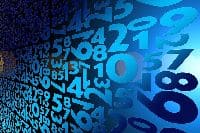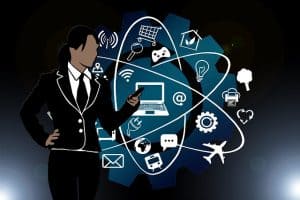
Combining Efforts with a Statistics Expert
The process of completing a thesis is truly a complex one, and a proper foundations is essential for ensuring a valid, useful, and acceptable thesis.
The thesis is the landmark event in the life of a student whereby the student demonstrates his or her capacity to be considered a professional in the disciplinary area.
Whereas knowledge understanding of the content of the discipline is one element, the correct application and utilization of statistics is another element of many thesis projects.
Even for students with strong math skills, the fact that they are still students implies that they are not experts yet. Even the most seasoned researcher still can benefit from statistics help, so most definitely this can be beneficial for a student.
Mistakes can happen, and so employing the appropriate help with statistics is essential, even if for nothing more than to validate that the procedures conducted by the student are correct.
Can I do the Stats Myself?
Students working on a thesis will find themselves sometimes between a rock and a hard place: is this something I can do on my own, or do I need to search for external help? Such assessment requires an introspection to be able to be totally honest with oneself.
If the conclusion is that I need external stats help, I can reach out for a Statistics expert from a variety of sources, in a variety of format.
One of the most beneficial, however, can be to simply employ a person to work with the student one-on-one, since this is often beyond the time capacities of teachers and professors.
This can, of course, become expensive. Often, the graduate student center or other resources on campus can offer low-cost, quality thesis statistics help for students in their final phase of graduate work.
These tutors will also be familiar with university policy so that they don't overstep boundaries or violate any plagiarism issues. Students must be careful to always ensure that any work they submit is their own.

Sometimes You Need an Expert
There is no reason for the student to feel inadequate if she or he needs help with the statistics portion of the thesis project. This is because Statistics is a deep discipline, like all other disciplines.
To ask the engineering or physics or psychology student, who is becoming an expert in their respective discipline, to also become an expert is statistics would be unreasonable.
While these researchers should possess a functional understanding of statistics, that is not the main focus of their work. Rather, statistics is a tool and, like all tools, it should be employed by people with expertise in using it.
This can mean that the student contacts the statistician early on in the design phase of their project in order to get off to a good start. It is unpleasant to have to backtrack because of having done things wrong.
The statistician can therefore help devise a question in such a way that it is likely to generate strong and clear data that can be used to form strong statistical conclusions. Weak statistical conclusions often come from weak data, which often come from poorly-defined or operationalized questions.
From there, the person or people providing statistics help can help in constructing the variables and the measurement instruments, and provide quality control with respect to the data obtained.
Finally, these people can apply the appropriate statistical tests for the given data in order to make the best of a research project. The tests must match the data, which must also match the question.
Related Content


